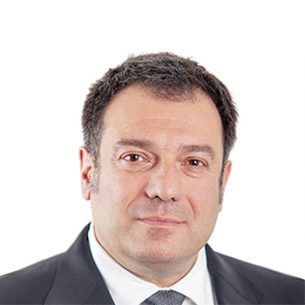Founding Partner Bambos Tsiattalou discusses the failings of the SFO and the suggestions of a merger with the Crown Prosecution Service in The Times.
Bambos’ article was published in The Times, 12 January 2023, and can be found here.
Hard on the heels of Clare Montgomery KC’s suggestion that the SFO should be merged with the Crown Prosecution Service, the agency’s latest prosecution started on Monday. Attention will focus on the trial of three former G4S executives: James Jardine, Mark Preston and Richard Morris, who are each charged with seven counts of fraud relating to false representations made to the Ministry of Justice. For the SFO, this may be the last chance to restore some lustre to a tarnished reputation.
During its 35-year history of investigating and prosecuting serious fraud, the agency’s track record has always been mixed. But under its eighth director, Lisa Osofsky, the SFO has slumped to a new low. In the final months of her five-year stretch as director before she departs in August, she can point to some achievements during her tenure: the recent £280m settlement with mining giant Glencore over bribery and corruption charges, and in 2020, the €991m deferred prosecution agreement (DPA) with Airbus.
But these are far outweighed by a string of high-profile prosecution failures, including the 2021 trial of two former Serco executives which collapsed when the SFO failed to disclose evidence to the defendants, landing the agency with a £2.7m costs bill. Serco had already agreed a DPA: one of many that the SFO has made with large companies, including Tesco, Rolls-Royce, and Airbus. Notably, 11 individuals charged in cases involving DPAs have been acquitted.
Worse still for Osofsky has been the controversy surrounding the SFO’s handling of the Unaoil prosecution that led to three quashed convictions. Last October, she was forced to apologise to the House of Commons justice select committee over her role in the fiasco after she held a private meeting with David Tinsley, a middleman working for Unaoil’s founding family.
Given the damage done to the agency and its director, the G4S trial may be pivotal for SFO attempts to re-establish its credibility. However, the agency’s move to outsource disclosure in the case inevitably raises questions about its in-house capabilities. Michelle Crotty, the SFO’s chief capability officer, told MPs during the committee hearing that the SFO was running at a permanent vacancy rate of between 20 and 25 per cent.
Against this background, the SFO’s decision to outsource the review of evidence (to be shared with the defence) in its investigation of G4S, may be a necessity. But it represents a dramatic volte face by Osofsky who had previously indicated that outsourcing disclosure would be “taking a risk” and “a lot more expensive”.
In light of its many problems, perhaps the best solution for restoring public confidence in the SFO is to follow Clare Montgomery’s advice and make the SFO and CPS a single unit.





